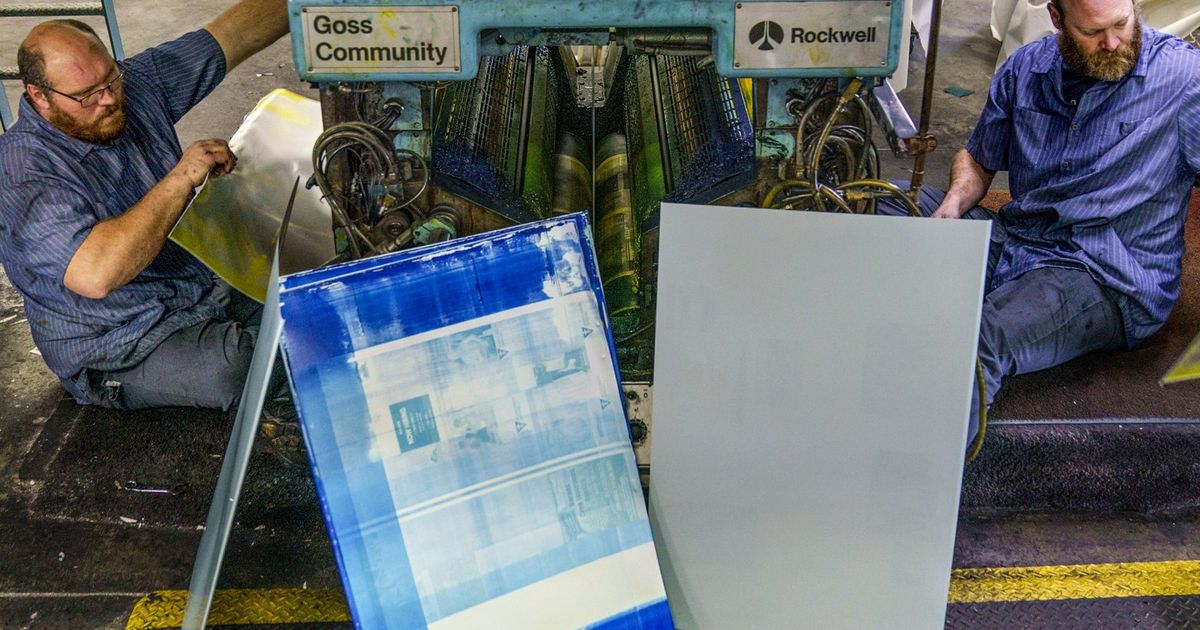Local news needs help against tech giants

[ad_1]
September 2020 was a bad month for the folks who live northwest of Eau Claire, Wisconsin, about 200 miles from Madison.
First, they learned that the Washburn County Register, the newspaper that had served Shell Lake and surrounding communities for more than 130 years, would cease publication. Then the Ledger Newspapers chain announced that after 125 years it would stop publishing the Polk County Ledger Press, St. Croix Falls Standard Press and Luck Enterprise Press.
The Journalism Competition and Preservation Act, which is languishing in Congress despite bipartisan support, won’t bring back those Wisconsin newspapers nor the dozens of others around the country that have closed in recent years. But it just might help save some news organizations that are barely hanging on. Versions of the bill have been filed in both the U.S. House and Senate.
Search the internet for “Shell Lake City Council“ today, and nothing particularly relevant comes up. Back when a newspaper was sending reporters to attend meetings, residents knew what their local government was up to. Now, residents must rely on unreliable social-media posts or worse.
Washburn County Register editor Gary King cited a “growing financial burden which has been accelerated by the coronavirus” for the closure. The pandemic was just the tipping point, though, as the paper had dealt with “changing reader trends, rising costs of publication and a decline in advertising.”
That last bit — advertising — is crucial. Newspapers have seen their print advertising revenue sharply decline since about 2000. Digital advertising is growing fast. But for many publishers, that hasn’t made up the difference, leaving their organizations short on cash to pay reporters, photographers and other staff.
A big part of the problem is that Google and Meta (Facebook) control online advertising. No small local newspaper has the clout to negotiate with those giants on even footing. Nor do most medium and large news publishers. Instead, Google and Facebook dictate the terms. They take a big cut of online revenue. Then they add insult to injury by appropriating news content and running it on their sites instead of directing readers — and their precious hits — to news websites.
The Journalism Competition and Preservation Act aims to rectify that by granting news publishers a temporary exemption from federal antitrust law. Currently, newspapers can’t negotiate with Google and Facebook from a position of strength because each one is on its own. If they could band together and negotiate as a bloc, they might secure a better deal with fairer use of the news they produce and a bigger slice of advertising revenue.
Empowering news organizations to stand up to Google and Facebook isn’t particularly controversial, even in Congress. Lawmakers from both major parties support the idea. But the bills that would do it are stuck in committee, and if they don’t move soon, they’ll stay there as lawmakers turn their attention to midterm elections and forget bipartisan cooperation for the rest of the year.
U.S. Rep. Glenn Grothman, R-Glenbeulah, who represents counties northeast of Madison, wisely signed on as a cosponsor of the bill in February.
U.S. Rep. Scott Fitzgerald, R-Juneau, has not. That’s especially unfortunate. Fitzgerald is a former newspaper publisher whose support could persuade other lawmakers to help save local journalism. He can speak with the power of experience and surely understands the value of a vibrant local free press.
(Editor’s note: Among Washington state’s delegation, U.S. Rep. Pramila Jayapal, D-Washington, is the only member currently cosponsoring the Journalism Competition and Preservation Act.)
If another year passes, more local news outlets almost certainly will fold. Those communities will lose watchdog journalism and a view into the workings of government. They will lose the human interest stories and sports coverage that connect neighbors to a shared experience. They will lose a cornerstone of civic life and democracy.
This is excerpted from the free, weekly Voices for a Free Press newsletter. Sign up to receive it at the Save the Free Press web site here.
[ad_2]
Source link








